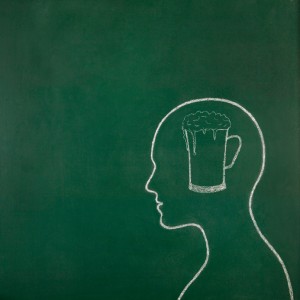Alcohol is processed in the body in a very similar way to fat. Alcohol can also provide the body with almost as many calories as fat too. This means that drinking alcohol in anyone with diabetes can cause the blood sugar to rise. If someone who has diabetes chooses to drink alcohol they should really do it occasionally and only when their diabetes and blood sugar levels are under control.
What is diabetes?
Diabetes is a metabolic disease in which the person has high blood glucose or high blood sugar. The reason for this is because their body doesn’t produce enough insulin or because the body doesn’t respond correctly to insulin or a mixture of both. People with high blood sugar will usually experience frequent urination, become very thirsty and become very hungry.
What are the effects of alcohol on diabetes?
Normally, the liver releases glucose to maintain blood sugar levels. But when someone drinks alcohol, the liver is busy breaking the alcohol down, so it does a poor job of releasing glucose into the bloodstream. This can lead to a drop in blood sugar levels if someone is drinking alcohol on an empty stomach. Each alcoholic beverage takes about 1-1 ½ hours to finish processing in the liver. For that entire time, the risk of low blood sugar exists. So, if someone has 2 drinks, they double that time to 2 to 3 hours that they are at risk for low blood sugar. The more alcohol consumed, the bigger the risk for serious low blood sugar.
Alcohol affects diabetes in many ways; here are a few of them:
- Drinking even moderate amounts of alcohol can cause the blood sugar to rise and excess alcohol can actually decrease the blood sugar level causing it to drop into dangerous levels.
- Beer and sweet wine contain carbohydrates that can raise blood sugar
- Alcohol stimulates the appetite which can cause overeating and can affect blood sugar control
- Alcohol interferes with the positive effects of oral diabetes medicines or insulin
- Alcohol can increase triglyceride levels
- Alcohol can increase blood pressure
- Alcohol can cause flushing, increased heart rate and slurred speech
Alcohol can also affect other medical conditions someone with diabetes may have, like diabetic nerve damage, diabetic eye disease, and high blood triglycerides.
All of these effects don’t mean that someone with diabetes cannot drink alcohol. Diabetics who take medication to control their blood sugar levels can first ask their doctor about drinking alcohol. For those that do drink limiting the amount they drink is the key; one drink for women and two drinks for men. Even two ounces of alcohol can affect the liver’s ability to produce glucose.
Alcohol and diabetes really don’t go hand in hand. Diabetes is the inability to process a substance almost exactly like alcohol. Luckily drinking can be moderate and diabetes can be managed as long as the person who is diabetic is knowledgeable, careful and aware. The safest bet when it comes to alcohol and diabetes though is for a person not to drink.


